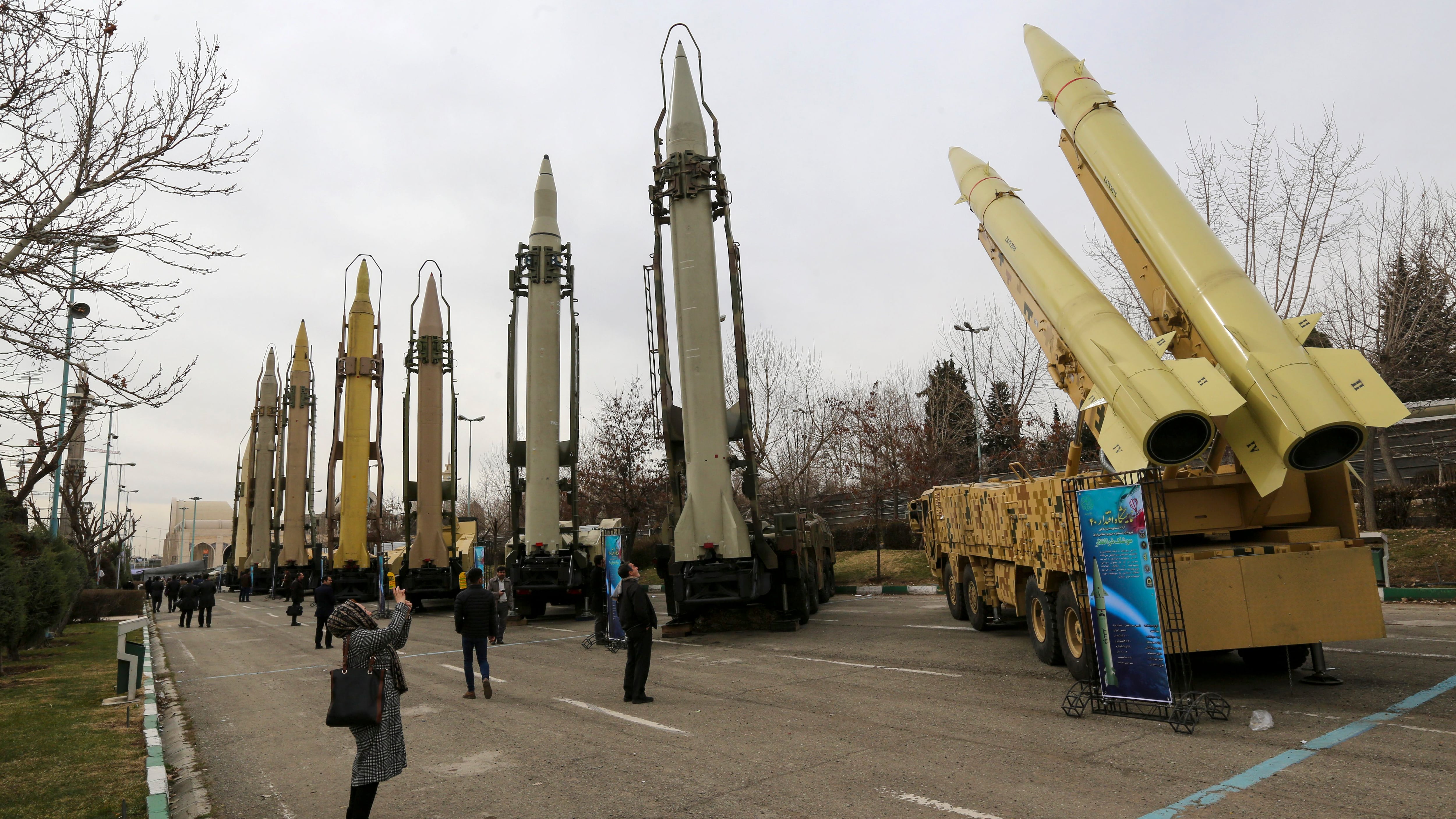Iran fired more than a dozen ballistic missiles at two Iraqi bases housing U.S. troops, but preliminary reports suggest there are no U.S. casualties yet, two sources with direct knowledge of actions on the ground told Military Times Tuesday night.
The Pentagon and U.S. Central Command have not provided a formal battle damage assessment.
A U.S. defense official told Military Times that Iran shot 15 missiles at Iraqi bases housing U.S. troops from inside Iran Tuesday night — 10 missiles hit al-Asad airbase, one missile hit Erbil International Airport in in the north, and four missiles failed in flight.
Iran signaled Tuesday night that there will be no more strikes targeting U.S. troops unless the U.S retaliates.
An American commando housed aboard the Iraqi base in Irbil said the threat was now over, but told Military Times that the al-Asad air base was hit hard.
“One [missile] apparently hit just off the airfield in Irbil and Asad is getting punished," the source said. “Waves coming in five-minute intervals of 4-5 missiles at the airfield.”
Iran declared Tuesday that it had started its retaliatory strikes for the U.S. strike that killed revered Iranian Quds Force commander Qassem Soleimani.
“At approximately 5:30 p.m. (EST) on January 7, Iran launched more than a dozen ballistic missiles against U.S. military and coalition forces in Iraq. It is clear that these missiles were launched from Iran and targeted at least two Iraqi military bases hosting U.S. military and coalition personnel at Al-Assad and Irbil,” the Pentagon said in an emailed statement Tuesday.
Videos from the Alahad TV network, a television station associated with an Iran-backed militia known as Asa’ib Ahl al-Haq, has posted videos allegedly showing celebrations in the Iranian city of Mashhad following the Iranian ballistic missile strike. Military Times has not verified the authenticity of the videos.
White House Press Secretary Stephanie Grisham said Tuesday night: “The President has been briefed and is monitoring the situation closely and consulting with his national security team.”
A defense official, speaking on background late Tuesday, said that despite reports that Camp Taji in Iraq was also hit with rocket fire, the defense official said he was “not aware” of any attacks on that base.
In addition to meeting with President Donald Trump, Secretary of Defense Mark Esper met with the Joint Chiefs of Staff and other top leaders in the Pentagon over the course of Tuesday evening. Esper also made a series of phone calls to “senior” congressional members, as well as joining Pentagon officials in calling “regional and NATO allies” to “get their input and their feedback,” according to the defense official on background.
The Islamic Revolutionary Guard warned the U.S. against retaliating for the Iranian strike and threatened that "it will face a more painful and crushing response,” Iran state-run media Fars News Agency reported.
The IRGC also said that "all the U.S. allied states where the terrorist army has a base, any territory that becomes the origin of any hostile and aggressive action against the Islamic Republic of Iran in any way will be targeted,” Fars reported.
Former CENTCOM commander retired Army Gen. Joseph Votel told Military Times that even with the current missile barrage launched by Iran, he does not foresee a major ground war.
“A major maneuver war between Armies … not very likely in my view,” he said in an email. "If you mean continued asymmetric attacks, rockets, missiles, etc — that is more likely and thus more concerning.”
For years, Votel, who served as commander of Joint Special Operations Command and U.S. Special Operations Command prior to taking the reigns at CENTCOM, says that the current strife is something “we all hoped we would not have to experience “ and that it is “anyone’s guess on how this plays out. But perhaps with a strong and direct response to our strike, Iran is hoping to de-escalate.”
Phillip Smyth, a research fellow with the Washington Institute, said Iran’s attack against American troops was a major escalation.
RELATED

“Launching a ballistic missile from Iran at an American target is quite the signal to send. This may just be one of a number of different responses that the Iranians engage in,” Smyth said.
It’s unknown at this time what type of ballistic missile was fired by Iran. Iran has a vast array of missiles, with some capable of hitting Israel and Eastern Europe.
The Shahab 1 and Qiam missiles boast ranges of 300 km and 800 km respectively and may have been in range to strike the Iraqi bases.
The Pentagon said Tuesday that the DoD had taken appropriate measures to safeguard service members and that bases in Iraq had been on high alert in expectation of a retaliatory strike by Iran.
There are roughly 5,000 U.S. troops in Iraq.
The Associated Press contributed to this story.
Shawn Snow is the senior reporter for Marine Corps Times and a Marine Corps veteran.
Howard Altman is an award-winning editor and reporter who was previously the military reporter for the Tampa Bay Times and before that the Tampa Tribune, where he covered USCENTCOM, USSOCOM and SOF writ large among many other topics.




